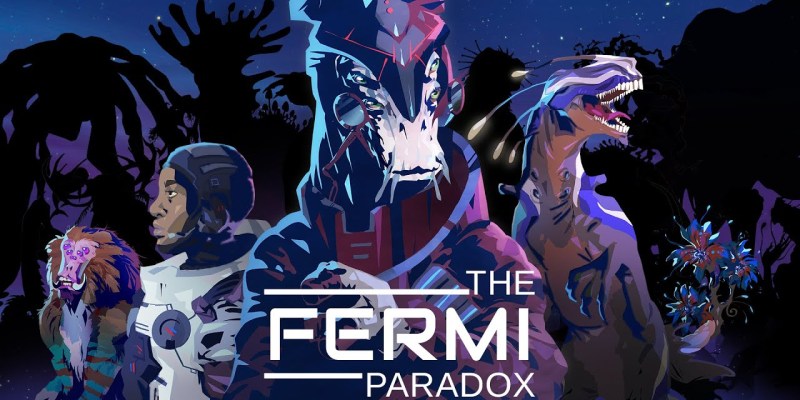Ever wonder why, if our galaxy is so large, we’ve never openly been contacted by aliens? Anomaly Games’ The Fermi Paradox, a narrative strategy game that recently hit Steam Early Access, revolves around just that question. Taking its name from the astrological conundrum, it casts you as a “Galactic Gardener” charged with guiding multiple species from their first steps to space travel and beyond. And while the title is far from complete, it already sports over 300 significant events and lends itself to emergent storytelling. Races will continue to develop unattended, but your actions can have far-reaching and often unexpected consequences.
The Fermi Paradox is the debut title of Berlin-based developer Anomaly Games, whose members have worked on Kane & Lynch 2, Spec Ops: The Line, and more. We got in touch with Jörg Reisig, Anomaly’s lead developer and the brains behind Fermi’s initial concept, to discover how and why they’re bringing this potentially harsh universe to life.
The Escapist: What was the catalyst that made you want to strike out on your own instead of working on other people’s games?
Jörg Reisig: I blame everything on Spec Ops: The Line. After working on a game that impacted so many people profoundly, it was hard for me to switch back to making “normal video games.” I was working as an A.I. programmer on the project, but I felt part of something special and thought-provoking, and that all that was possible with a military shooter of all things really impressed me. After Yager finished SOTL, for a while I stayed employed at game studios but switched quickly to freelance work with the goal to make my own unique games someday.
Why did you choose sci-fi as the genre you were going to tackle, and hard sci-fi at that?
Jörg Reisig: I was always a sci-fi fan but often felt a disconnect between the interesting sci-fi stories I read in books and the settings and plots that I encounter in sci-fi games. I worked as a game designer at Dreadnought, and we thought a lot about science fiction and world-building during that time. Afterwards, I wanted to bring some aspects of the more social and serious science fiction themes to video games. Also, hard sci-fi often gets dropped for convenient “space magic” in games, and we don’t think we need that for the kind of slow-building galactic stories that we are making.
Why choose The Fermi Paradox as the focus for your game?
Jörg Reisig: I think the first thing I thought when reading about the Fermi paradox is, “Why hasn’t anyone made a game about this?” The Great Filter theory, the rise and fall of entire civilizations which do not even know that the others exist. Radio signals or spaceships that wander for thousands of years through space. All great elements of a game. Also, I always played around with the idea of a strategy game where you influence all the factions at once, and The Fermi Paradox seems to be a perfect fit for that.
In 2014 I wrote down my first ideas (for The Fermi Paradox), and in 2015 I built the first prototypes as a side project. But it took until September 2020 to get actual funding and to gather an awesome team to start working on the game full time.
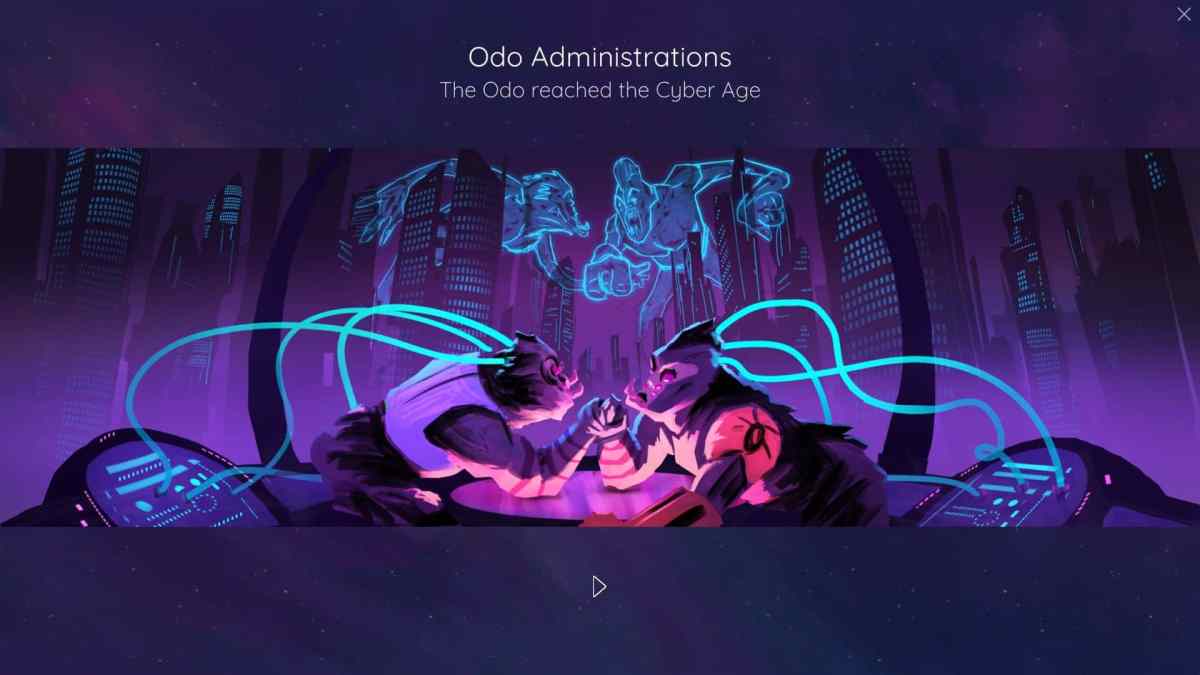
Why make the player a “galactic gardener” rather than giving them absolute control and letting them micro-manage civilizations?
Jörg Reisig: We wanted to focus on the big important things. You are watching over entire civilizations, so the player should not bother with placing city buildings on every single planet and the amount of spaceships in every battle formation. There are already awesome space sims that do exactly that. But we are a small team and want to give the experience of a civilization-building game without the need to sink 100 hours into it each playthrough.
What kind of impact can your decisions have, both for that specific race and the others in the galaxy?
Jörg Reisig: The best example is our radio signal feature. A civilization reaching the industrial age might start sending out radio waves into the galaxy (either intentionally or by accident). The content of the messages can vary; sometimes it is a scientific experiment or maybe just music broadcasts. These signals will need hundreds of years to reach another civilization, and if they have the technological capability, they might react full of hope or in panic when they pick up the message of the ancient sender civilization. Also, the sender civilization might have already destroyed themselves or evolved into something very different.
The narrative structure of our game is modular rather than focusing on long storylines. As an example, some event stories will only fit a certain technological period, or to a very dystopian society, or a newly formed colony. Depending on the player actions, these stories might have a specific outcome. Maybe the entire society collapses and only a few survive; maybe they develop a new kind of government or maybe just a weird new artform. Then we create follow-up events reacting to these outcome types, be it collapse, policy changes, or new art. This “mix and match” approach to story generation can lead to emergent gameplay resulting in narratives that sometimes aren’t even planned by our writers.
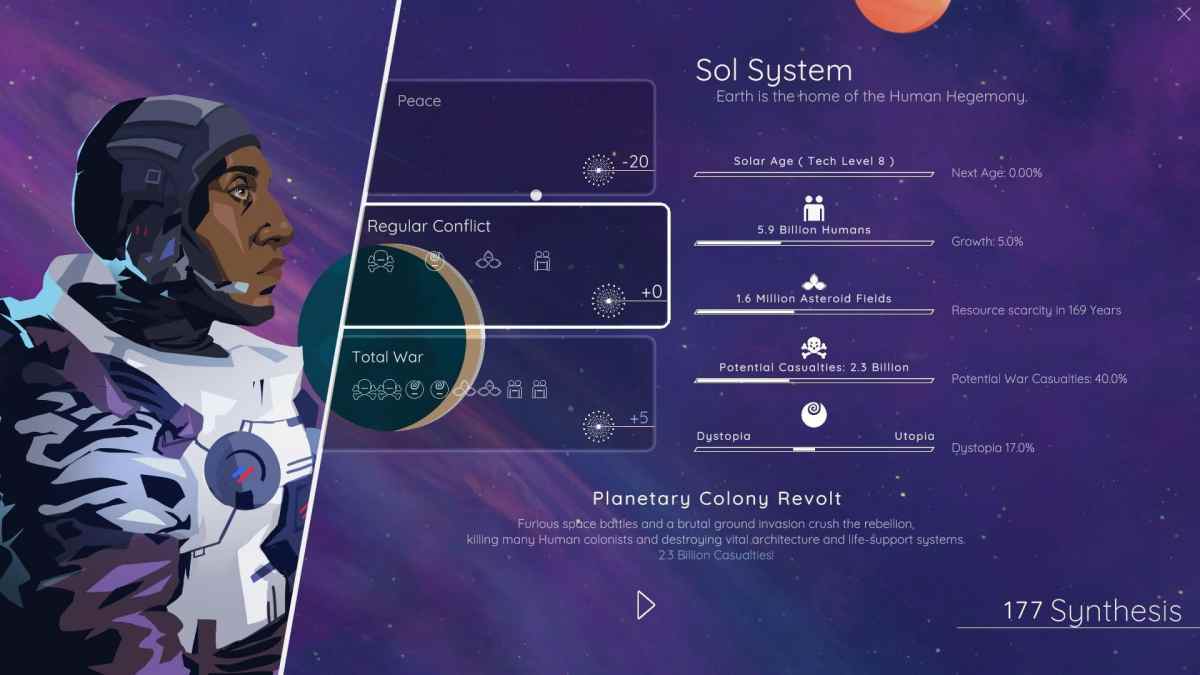
If you’re working with story modules, how do you decide when you’re “done”? Will there be additional content after The Fermi Paradox leaves early access?
Jörg Reisig: The game needs enough diverse and different story events so that it still feels exciting after multiple playthroughs. We have a good idea of how many additional events we’d likely need, but only with a lot of playtesting, statistical analysis, and community feedback can we decide if the narrative content is complete enough. I don’t want to promise anything for the time after early access, but any new update will also contain new story elements.
Why did you choose to release The Fermi Paradox into Steam Early Access? Are there any negatives to doing so?
Jörg Reisig: The Fermi Paradox is a project that is very well suited for early access. We already got tons of great feedback and ideas from the community, and small changes and event additions have already improved our early access version a lot. Since the game can be played over and over again, it is hopefully fun to come back to the early access version and check out new updates and see how the game plays differently.
Also, it really helps to see what issues are important for the community so we don’t waste the resources of our small team on things that are maybe less important than we thought. The danger is that we as developers get too distracted by community management, which always takes time, but for now it is also a big motivation boost to see our players already engaging with the core version of the game and coming up with a lot of ideas and stories of their own.
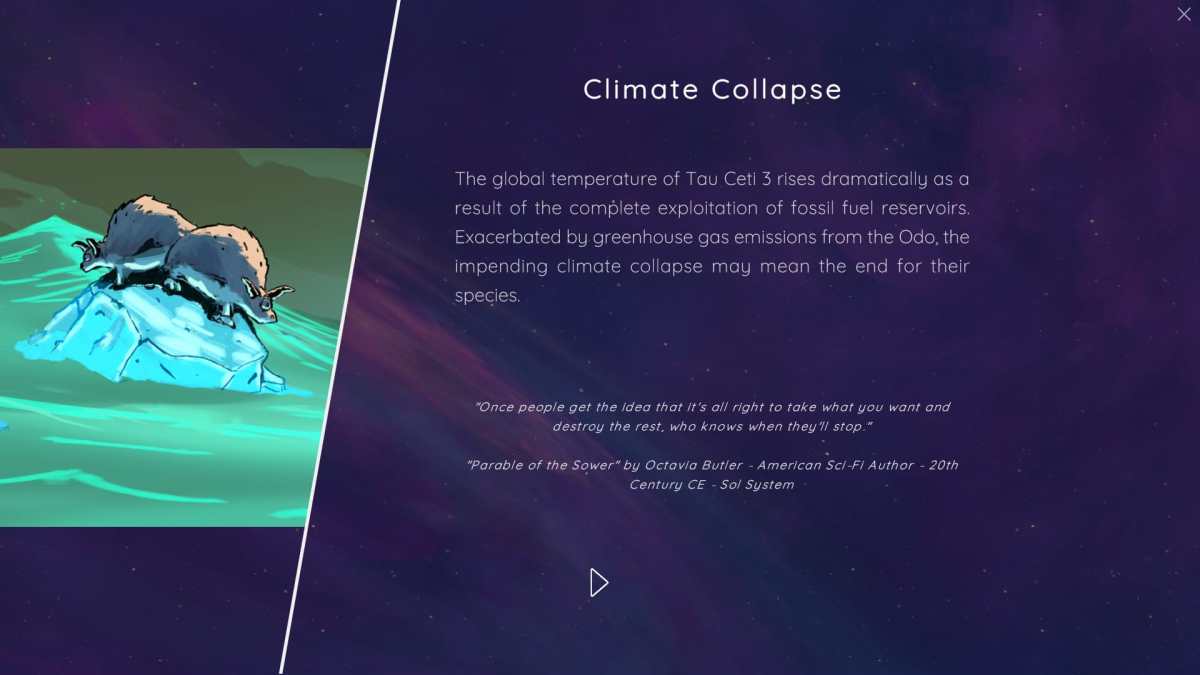
How did you fund development, prior to entering early access? Are you and your team working full time on the game?
Jörg Reisig: Until 2020 the project was done in our spare time, but now we luckily have funds from the German government (they support video games now) and had help from the Wings Interactive games fund. I am focusing completely on The Fermi Paradox while other team members have side gigs or their own projects to work on.
Are there any works of sci-fi that have inspired you or influenced the development of The Fermi Paradox ?
Jörg Reisig: This could be a very long list; mostly it is sci-fi literature. I normally name The Three-Body Problem by Liu Cixin as a big inspiration for the slow radio signal back and forth between the planets. Ursula Le Guin’s Hainish Cycle for smart social and political science fiction. Octavia Butler’s Parable of the Sower for dystopian societies away from all the Mad Max glamour. Iain Banks’ Culture series for post-scarcity worlds. But also we draw inspiration from shows like Cowboy Bebop, The Expanse, and Westworld.
Quite a few streamers have picked up on The Fermi Paradox . Have you watched any of those streams or videos and if so, have any surprised you?
Jörg Reisig: It is amazing to watch what kind of stories players are building already in their heads with what we provide in the early access version. There are a lot of great streams out there, and I wish I had time to watch them all. I’m still catching up on them.
What is really interesting to see is that some players sometimes pick a civilization and choose all the bad options to farm Synthesis (our in-game resource to influence aliens as the galactic gardener) and a lot of bad things are happening to them, and at some point they actually become fond of these poor aliens and try to save them from their misery.
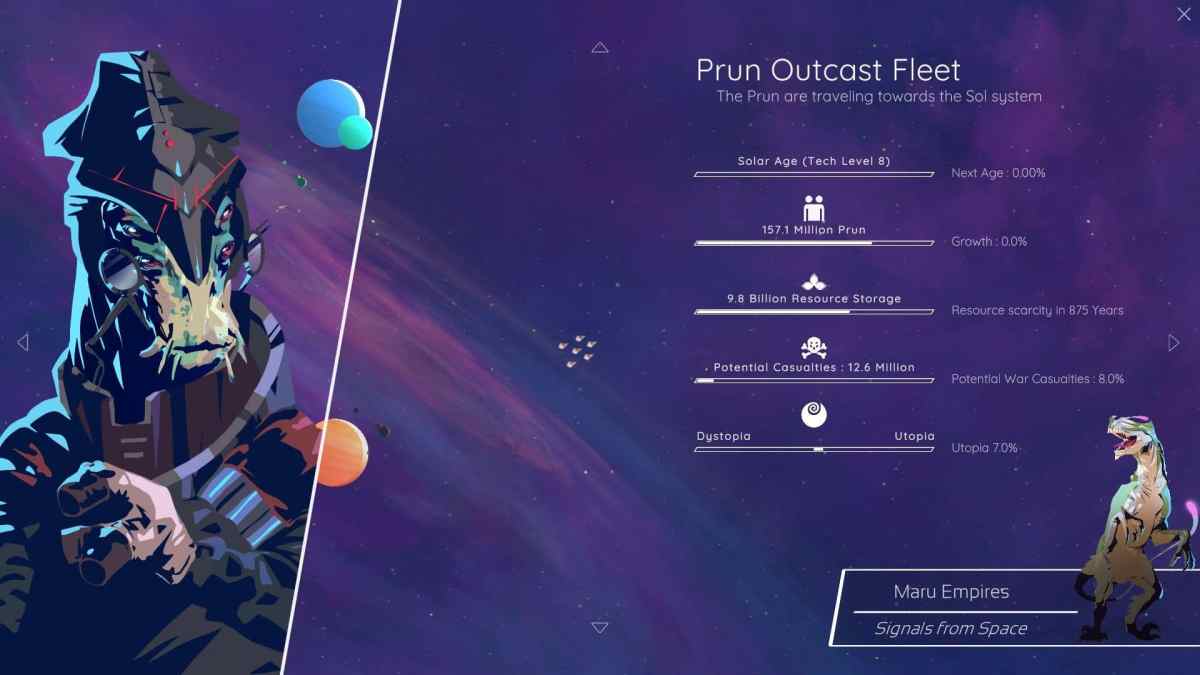
Speaking of bad things, does (or will) the game place any significant constraints, ethical or otherwise, on the player?
Jörg Reisig: The constraints are coming only from the system itself. I compare the game often to a galactic fish tank. Of course you can kill every fish in an aquarium game, but naturally that makes the game far less interesting. A lot of the game’s endings will only be reachable when multiple species cooperate with each other, and dystopian societies tend to not play very well with others.
What has been the biggest challenge so far in creating The Fermi Paradox?
Jörg Reisig: To be honest, probably rather boring development stuff. Like managing a new indie studio, and programming, and designing a game all at the same time. From a conceptual perspective, the scale of time and space is tricky in a game where the playthrough lasts only a couple of hours, but we are observing the entire galaxy. The generation ships in our game need thousands of years to reach new stars, and governments can rise and fall just during a single game turn. It is quite a challenge to transport this feeling to the player.
Will the physiology of the species you get impact the final game? So, for example, gaseous beings will face different challenges to dinosaurs?
Jörg Reisig: Yes, that is something that is completely missing from the core early access version. We plan to add unique events and technology levels depending on the biology or the natural environment of a species. Civilizations created by sentient plants should evolve differently than human mammals, and species born on an ice planet will have different challenges to overcome than creatures from Earth.
What do you hope players will get out of The Fermi Paradox ? What else would you like them to know about it?
Jörg Reisig: I hope they experience their very own personal and interesting stories when playing galactic gardener with the alien civilizations in their care. The Fermi Paradox does not really fit into traditional genres; it is a wild mix of classic choose-your-own-adventure games, 4X strategy, idle games, and management sims. It is not for everyone, but if you care about the more philosophical and political aspects of science fiction, then I hope this is a game for you.
Anomaly Games’ The Fermi Paradox is available through Steam Early Access now.
This interview has been edited for clarity and brevity.
